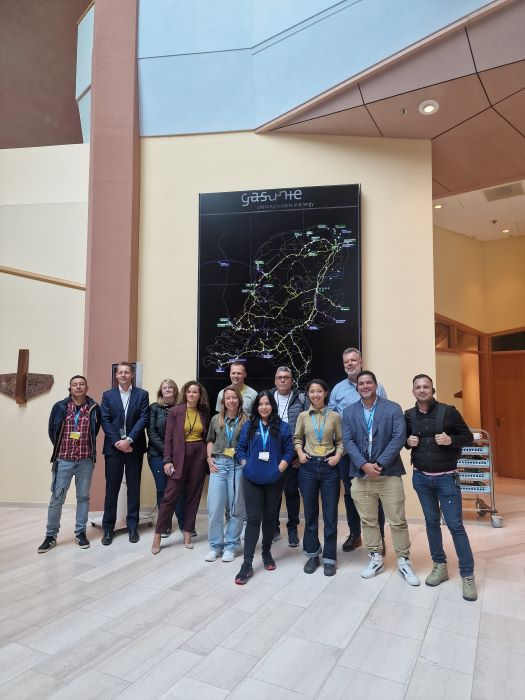A just transition begins with collaboration
Colombian and Dutch trade unions join forces during the Just Transition tour

In October 2025, Mondiaal FNV and Colombian partners embarked on a Just Transition tour in the Netherlands to strengthen collaboration around just energy transitions. The visit brought together trade union leaders, civil society actors, and Dutch institutions to discuss how workers and communities in both countries are navigating the global energy shift.

CIPAME delegation at RWE Amercentrale
Text by Lina de los Rios Torres
In October 2025, Mondiaal FNV and Colombian partners embarked on a Just Transition tour in the Netherlands to strengthen collaboration around just energy transitions. The visit brought together trade union leaders, civil society actors, and Dutch institutions to discuss how workers and communities in both countries are navigating the global energy shift.
Why this matters
The energy transition is not just a national story. European demand continues to drive Colombian coal extraction and export. European policies such as the ETS (Emissions Trading System) and CBAM (Carbon Border Adjustment Mechanism) further influence both contexts. The tour made clear that workers and unions need cross-border collaboration to prevent a race to the bottom and to secure justice and fairness in transitions. It was also highlighted that the Netherlands was once even a partial owner of coal mines in Colombia, underlining the need for responsible disengagement. Moving away from fossil fuels cannot mean abandoning workers and communities who are left behind.
Key stops and conversations
- EMO: Discussing how the Rotterdam Port is involved in the coal supply chain and global and national energy transition, and how initiatives such as “het Kolenfonds” secure a just transition for workers in Dutch coal supply chain;
- RWE Amercentrale: discussions around biomass, solar, and the future of energy hubs in the Netherlands, as well as questions on social plans for workers.
- GasUnie: insights on hydrogen, CO₂ capture, and large-scale investments, with potential funds and knowledge exchange opportunities for international collaboration.
- RVO (Netherlands Enterprise Agency): explored options for linking Colombian pilot projects with Dutch innovation and funding.
- Roundtable with TNO, WUR, and CIPAME: focused on building capacity for workers in Colombia to move from diagnostics to implementation of sustainable projects.
CIPAME delegation at Gasunie
Workers’ perspectives
From Cesar to La Guajira in Colombia, workers are already thinking about what comes after potential mine closures. They want to start setting up alternatives now, with justice pillars at the heart of the process. Colombian union leaders showed strong initiative, proposing ideas and pilots like knowledge exchange programs with Dutch unions and concrete projects for reskilling and sustainable production.
Lessons learned
Engaging the business sector is essential. Employers like RWE, EMO, and GasUnie are shaping the transition, and unions must be at the table. There are also real opportunities here: active union leaders on both sides proposed knowledge exchanges and joint training programs that could strengthen worker power across borders.
Alliances need to start early. Both in the Netherlands and Colombia, social plans for workers often come too late. The tour highlighted the importance of early processes that involve workers and communities from the beginning.
Looking forward
The tour showed Mondiaal FNV’s added value as a connector between unions, employers, and Dutch institutions. The tour sparked concrete ideas for follow-up, especially regarding the engagement with Dutch companies on responsible business conduct in their (energy) supply chains and building joint projects with RVO, WUR, TNO and CNV.
The message from both Dutch and Colombian partners was clear: a just transition will only succeed if it is built across borders, with workers, unions, businesses, and governments all involved.





